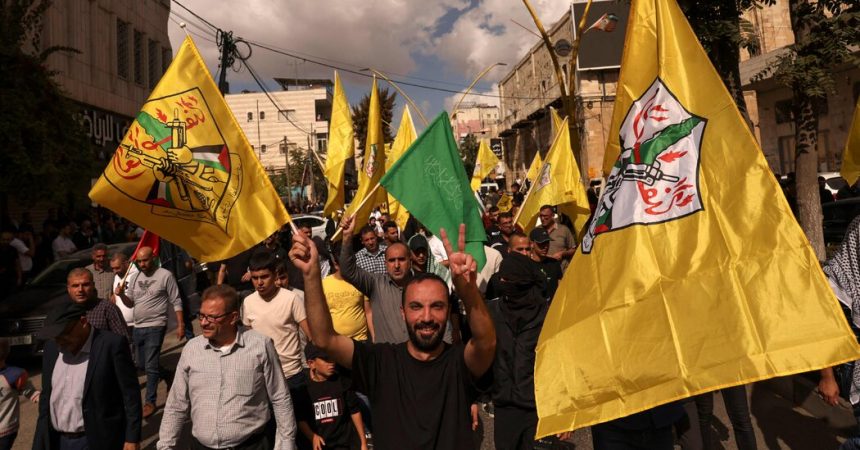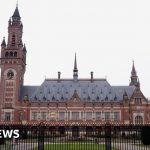Officials from Hamas and Fatah, the main Palestinian factions that have long competed for power in Gaza and the West Bank, met in Beijing recently for what Chinese officials on Tuesday called “in-depth and candid talks on promoting intra-Palestinian reconciliation.”
The discussions in Beijing were not expected to produce much. Israel’s bombardment of Gaza has deepened support for Hamas in the Israeli-occupied West Bank, where the Palestinian Authority — controlled by Fatah — has administered cities and towns for decades. U.S. officials have suggested that the Palestinian Authority could help govern a postwar Gaza, though that would most likely require approval from Hamas.
And that kind of power-sharing would require more compromise than currently seems possible. Fatah and Hamas met in late February in Russia without any apparent progress toward a unified government. They remain canyons apart on many issues, especially with Fatah demanding that Hamas dismantle its armed wing — a move that the militant group has repeatedly dismissed in the past.
And yet, for Beijing, the meetings most likely served a larger purpose: to present China as a great power and peacemaker in opposition to the United States.
Beijing helped restore diplomatic ties between Iran and Saudi Arabia, and it has also floated a set of principles to end the conflict in Ukraine, although Ukraine and its Western allies have said those principles lack credibility. Declaring solidarity with the Palestinian cause adds to the case China hopes to make to smaller countries around the world that feel alienated by the West, according to analysts.
“The thread which ties these initiatives to Beijing’s broader foreign policy is its claim to be able to represent developing countries, or what they like to call the ‘global south,’” said Richard McGregor, a senior fellow for East Asia at the Lowy Institute in Sydney.
“Such gestures, and they are in large part gestures for the moment,” he added, “fits with China’s current priorities, which is to learn the habits of a great power with the heft and skill to bring warring parties to the table.”
The officials who attended the gathering in the Chinese capital included Mousa Abu Marzouk, a senior member of Hamas’s political wing, and Azzam al-Ahmad, a member of the Fatah Central Committee, according to Palestinian officials.
Lin Jian, a spokesperson for China’s Foreign Ministry, told a news briefing on Tuesday that representatives of Hamas and Fatah had “recently” held talks in Beijing and had agreed to continue a dialogue. He did not specify when the meeting was held.
Fatah and Hamas have a fraught history. When Israel withdrew all its troops and citizens from Gaza in 2005, it handed power there to the Palestinian Authority. But Fatah lost a legislative election the next year to Hamas. In 2007, Hamas seized power in Gaza in a short and brutal civil war, dividing the Palestinians not only territorially, but politically.
Joy Dong contributed research.






